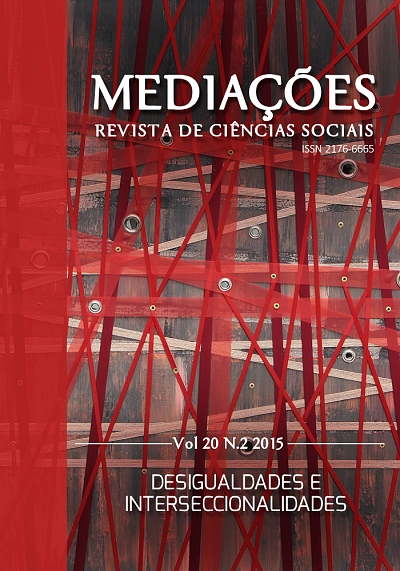Political inequalities in Brazil: descriptive representation in the 2014 elections to the Chamber of Deputies
DOI:
https://doi.org/10.5433/2176-6665.2015v20n2p235Keywords:
Descriptive representation, Inequality, Chamber of deputies, 2014 ElectionAbstract
The descriptive representation proposes that Parliament must be formed as the image of the society. Using data of the 2014 federal election and the 2010 Census, this article exposes a deeply unequal structure in the access to political power in Brazil: women, black people, the less educated, workers and the poor are underrepresented in Chamber of Deputies. Both the opportunity to compete as the ability to be elected, the inequality of politics in Brazil poses a huge challenge to the political incorporation of social diversity in Parliament. What is the challenge of Brazilian democracy regarding the fair representation of the different? At the time when the notion of a crisis of representation is strengthened, is necessary rethink what is expected of democracy and how it can contribute to its original design, the equality between citizens.Downloads
References
ARATO, Andrew. Representação, soberania popular e accountability. Lua Nova, São Paulo, n. 55-56, p. 85-103, jan. 2002.
ARAÚJO, Clara. Partidos políticos e gênero: mediações nas rotas de ingresso das mulheres na representação política. Revista de Sociologia e Política, Curitiba, n. 24, p. 193-215, jun. 2005.
ARISTÓTELES. Política. Brasília: UNB, 1997.
BARRETO, Alvaro A. de B. Representações das associações profissionais no Brasil: o debate dos anos 1930. Revista de Sociologia e Política, Curitiba, n. 22, p. 119-133, jun. 2004.
BRASIL. Lei nº 12.711, de 29 de agosto de 2012. Dispõe sobre o ingresso nas universidades federais e nas instituições federais de ensino técnico de nível médio e dá outras providências.
BRASIL. Secretaria da Receita Federal. Tabelas rendas e bens.
CORADINI, Odaci L. Escolarização, militantismo e mecanismos de “participação” política. In: HEREDIA, Beatriz; TEIXEIRA, Carla; BARREIRA, Irlys. (Org.). Como se fazem eleições no Brasil: estudos antropológicos. Rio de Janeiro: Relume Dumará, 2002.
CORADINI, Odaci L. Representação profissional e elites políticas no Brasil no período recente. Política & Sociedade, Florianópolis, n. 9, p. 123-161, out. 2006.
DAHL, Robert A. Sobre a democracia. Brasília: UNB, 2001.
KELSEN, Hans. A democracia. São Paulo: Martins Fontes, 2000.
MANIN, Bernard. Principes du gouvernement représentatif. Paris: Flammarion, 2012.
MILL, John Stuart. Considerações sobre o governo representativo. São Paulo: IBRASA, 1964.
MOSCA, Gaetano. The ruling class. Nova York: McGraw-Hill Book Company, 1939.
PAIVA, Denise; BRAGA, Maria do Socorro S.; PIMENTEL JUNIOR, Jairo Tadeu Pires. Eleitorado e partidos políticos no Brasil. Opinião Publica, Campinas, v. 13, n. 2, p. 388-408, 2007.
PHILLIPS, Anne. De uma política de idéias a uma política de presença? Estudos Feministas, Florianópolis, v. 9, n. 2, p. 268-290, jul. 2001.
PITKIN, Hanna F. The concept of representation. Berkeley: University of Califórnia, 1967.
SANTOS, Wanderley G. dos. Poliarquia em 3D. Dados, Rio de Janeiro, v. 41, n. 2, p.207-281, 1998.
YOUNG, Iris M. Polity and group difference: a critique of the ideal of universal citzenship. Ethics, Chicago, v. 99, n. 2, p. 250-274, jan. 1989.
Downloads
Published
How to Cite
Issue
Section
License
Copyright on articles published in Mediações belongs to the author(s): in the case of partial or entire republication of the original publication, we ask author(s) to indicate the original publication in the periodical.
Mediações uses the Creative Commons Attribution 4.0 International license, which allows Open Access, enabling any user to read, download, copy and disseminate its content so long as adequately referenced.
The opinions expressed by the author(s) are their sole responsibility.
































